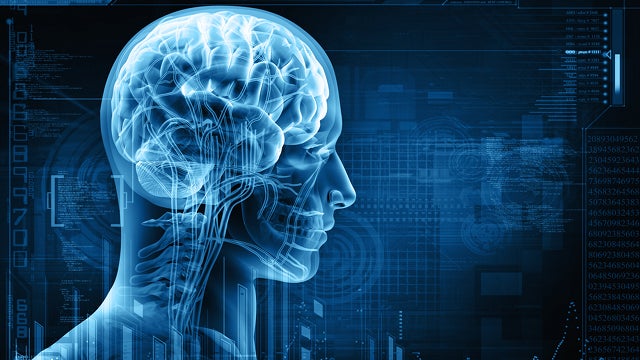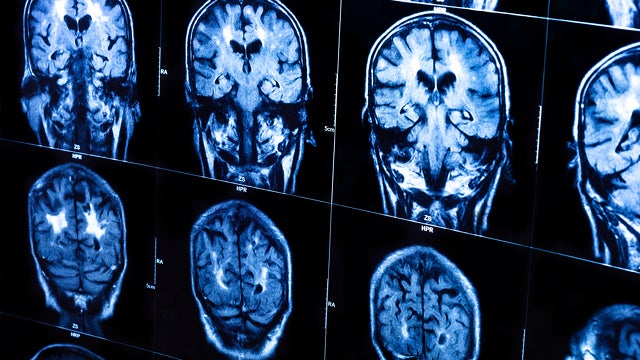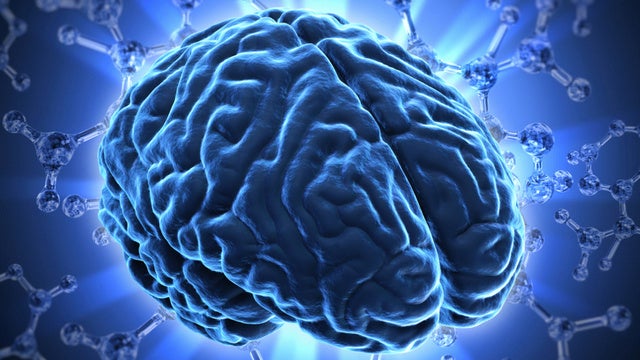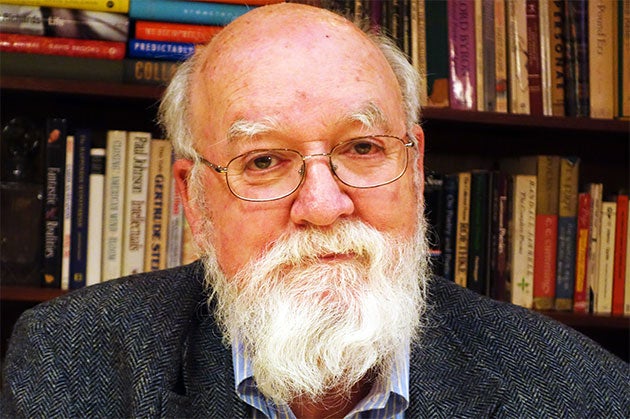
Humans have debated the issue of free will for millennia. But over the past several years, while the philosophers continue to argue about the metaphysical underpinnings of human choice, an increasing number of neuroscientists have started to tackle the issue head on — quite literally. And some of them believe that their experiments reveal that our subjective experience of freedom may be nothing more than an illusion. Here's why you probably don't have free will.
Indeed, historically speaking, philosophers have had plenty to say on the matter. Their ruminations have given rise to such considerations as cosmological determinism (the notion that everything proceeds over the course of time in a predictable way, making free will impossible), indeterminism (the idea that the universe and our actions within it are random, also making free will impossible), and cosmological libertarianism/compatibilism (the suggestion that free will is logically compatible with deterministic views of the universe).
Now, while these lines of inquiry are clearly important, one cannot help but feel that they're also terribly unhelpful and inadequate. What the debate needs is some actual science — something a bit more...testable.
And indeed, this is starting to happen. As the early results of scientific brain experiments are showing, our minds appear to be making decisions beforewe're actually aware of them — and at times by a significant degree. It's a disturbing observation that has led some neuroscientists to conclude that we're less in control of our choices than we think — at least as far as some basic movements and tasks are concerned.
At the same time, however, not everyone is convinced. It may be a while before we can truly prove that free will is an illusion.
Bereitschaftspotential
Neuroscientists first became aware that something curious was going on in the brain back in the mid 1960s.
German scientists Hans Helmut Kornhuber and Lüder Deecke discovered a phenomenon they dubbed "bereitschaftspotential" (BP) — a term that translates to "readiness potential." Their discovery, that the brain enters into a special state immediately prior to conscious awareness, set off an entirely new subfield.
After asking their subjects to move their fingers (what were self-initiated movements), Kornhuber and Deecke's electroencephalogram (EEG) scans showed a slow negative potential shift in the activity of the motor cortex just slightly prior to the voluntary movement. They had no choice but to conclude that the unconscious mind was initiating a freely voluntary act — a wholly unexpected and counterintuitive observation.
Needless to say it was a discovery that greatly upset the scientific community who, since the days of Freud, had (mostly) adopted a strictly deterministic view of human decision making. Most scientists casually ignored it.
But subsequent experiments by Benjamin Libet in the 1980s reinforced the pioneering work of Kornhuber and Deecke. Similarly, Libet had his participants move their fingers, but this time while watching a clock with a dot circling around it. His data showed that the readiness potential started about 0.35 seconds earlier than participants' reported conscious awareness.
He concluded that we have no free will as far as the initiation of our movements are concerned, but that we had a kind of cognitive "veto" to prevent the movement at the last moment; we can't start it, but we can stop it.
From a neurological perspective, Libet and others attributed the effect to the SMA/pre-SMA and the anterior cingulate motor areas of the brain — an area that allows us to focus on self-initiated actions and execute self-instigated movements.
Modern tools show the same thing
More recently, neuroscientists have used more advanced technologies to study this phenomenon, namely fMRIs and implanted electrodes. But if anything, these new experiments show the BP effect is even more pronounced than previously thought.

For example, a study by John-Dylan Haynes in 2008 showed a similar effect to the one revealed by Libet. After putting participants into an fMRI scanner, he told them to press a button with either their right or left index fingers at their leisure, but that they had to remember the letter that was showing on the screen at the precise moment they were committed to their movement.
The results were shocking. Haynes's data showed that the BP occurred one entire second prior to conscious awareness — and at other times as much as ten seconds. Following the publication of his paper, he told Nature News:
The first thought we had was 'we have to check if this is real.' We came up with more sanity checks than I've ever seen in any other study before.
The cognitive delay, he argued, was likely due to the operation of a network of high-level control areas that were preparing for an upcoming decision long before it entered into conscious awareness. Basically, the brain starts to unconsciously churn in preparation of a decision, and once a set of conditions are met, awareness kicks in, and the movement is made.
In another study, neuroscientist Itzhak Fried put aside the fMRI scanner in favor of digging directly into the brain (so to speak). To that end, he implanted electrodes into the brains of participants in order to record the status of individual neurons — a procedure that gave him an incredibly precise sense of what was going on inside the brain as decisions were being made.
His experiment showed that the neurons lit up with activity as much as 1.5 seconds before the participant made a conscious decision to press a button. And with about 700 milliseconds to go, Fried and his team could predict the timing of decisions with nearly 80% accuracy. In some scenarios, he had as much as 90% predictive accuracy.
Different experiment, similar result.
Fried surmised that volition arises after a change in internally generated fire rates of neuronal assemblies cross a threshold — and that the medial frontal cortex can signal these decisions before a person is aware of them.
"At some point, things that are predetermined are admitted into consciousness," he told Nature, suggesting that the conscious will might be added on to a decision at a later stage.
And in yet another study, this one by Stefan Bode, his detailed fMRI experiments showed that it was possible to actually decode the outcome of free decisions for several seconds prior to it reaching conscious awareness.
Specifically, he discovered that activity patterns in the anterior frontopolar cortex (BA 10) were temporally the first to carry information related to decision-making, thus making it a prime candidate region for the unconsciousgeneration of free decisions. His study put much of the concern about the integrity of previous experiments to rest.
The critics
But not everyone agrees with the conclusions of these findings. Free will, the skeptics argue, is far from debunked.

Back in 2010, W. R. Klemm published an analysis in which he complained about the ways in which the data was being interpreted, and what he saw as grossly oversimplified experimentation.
Others have criticized the timing judgements, arguing about the short timeframes between action and movement, and how attention to aspects of timing were likely creating distortions in the data.
It's also possible that the brain regions being studied, namely the pre-SMA/SMA and the anterior cingulate motor areas of the brain, may only be responsible for the late stages of motor planning; it's conceivable that other higher brain systems might be better candidates for exerting will.
Also, test subjects — because of the way the experiments were set up — may have been influenced by other "choice-predictive" signals; the researchers may have been measuring brain activity not directly related to the experiment itself.
The jury, it would appear, is still out on the question of free will. While the neuroscientists are clearly revealing some important insights into human thinking and decision making, more work needs to be done to make it more convincing.
What would really settle the issue would be the ability for neuroscientists to predict the actual outcome of more complex decisions prior to the subject being aware of it themselves. That would, in a very true sense, prove that free will is indeed an illusion.
Furthermore, neuroscientists also need to delineate between different types of decision-making. Not all decisions are the same; moving a finger or pressing a button is very different than contemplating the meaning of life, or preparing the words for a big speech. Given the limited nature of the experiments to date (which are focused on volitional physical movements), this would certainly represent a fruitful area for inquiry.
Blurring science, philosophy, and morality
Moreover, there's also the whole issue of how we're supposed to reconcile these findings with our day-to-day lives. Assuming we don't have free will, what does that say about the human condition? And what about taking responsibility for our actions?
Daniel Dennett has recently tried to rescue free will from the dustbin of history, saying that there's still some elbow room for human agency — and that these are still scientific questions. Dennett, acknowledging that free will in the classic sense is largely impossible, has attempted to reframe the issue in such a way that free will can still be shown to exist, albeit under certain circumstances. He writes:

There's still a lot of naïve thinking by scientists about free will. I've been talking about it quite a lot, and I do my best to undo some bad thinking by various scientists. I've had some modest success, but there's a lot more that has to be done on that front. I think it's very attractive to scientists to think that here's this several-millennia-old philosophical idea, free will, and they can just hit it out of the ballpark, which I'm sure would be nice if it was true.It's just not true. I think they're well intentioned. They're trying to clarify, but they're really missing a lot of important points. I want a naturalistic theory of human beings and free will and moral responsibility as much as anybody there, but I think you've got to think through the issues a lot better than they've done, and this, happily, shows that there's some real work for philosophers.
Dennett, who is mostly responding to Sam Harris, has come under criticism from people who complain that he's being epistemological rather than scientific.






